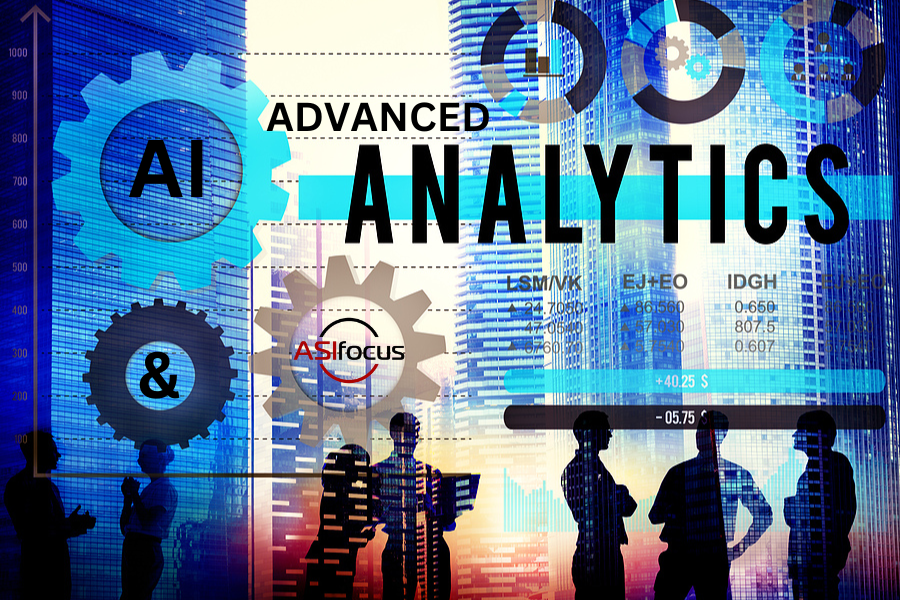Advanced analytics involves techniques that go beyond traditional business intelligence (BI) methods to analyze data. Along with AI, this field includes various sophisticated methods such as predictive analytics, machine learning, data mining, and big data analytics.
While basic analytics focuses on historical data, advanced analytics aims to forecast future events and behaviors. These techniques help uncover patterns, predict outcomes, and generate actionable insights.
Types of Advanced Analytics
To start off, let’s go over the different types of advanced analytics:
- Predictive Analytics: Predictive analytics uses historical data to forecast future outcomes. Techniques include statistical modeling, machine learning algorithms, and regression analysis.
- Prescriptive Analytics: Prescriptive analytics suggests actions based on predictive insights. It employs optimization and simulation algorithms to recommend the best course of action.
- Descriptive Analytics: Descriptive analytics summarizes historical data to understand past events. Techniques include data aggregation and data mining.
- Diagnostic Analytics: Diagnostic analytics explores data to identify the root causes of past performance. It involves techniques like drill-down analysis and data discovery.
- Big Data Analytics: Big data analytics handles extensive, complex data sets that traditional data processing software cannot manage. It involves distributed computing and advanced data storage solutions.
In order to gain the fullest picture of your company’s operations, you should have access to all of these types of analytics.
Financial Benefits of Advanced Analytics
Advanced analytics can have many financial benefits. Here are a few:
- Enhanced Financial Decision-Making: Advanced analytics provides a comprehensive view of financial data, leading to better strategic decisions. Data-driven insights can significantly improve decision-making and accountability, allowing for more effective resource allocation and optimal financial performance.
- Increased Revenue and Profitability: By identifying new opportunities and optimizing existing processes, advanced analytics can boost profitability. It helps uncover revenue drivers, streamline pricing strategies, and maximize financial returns.
- Improved Risk Management: Predictive analytics enables CFOs to anticipate and mitigate financial risks before they become significant. By identifying potential threats and opportunities, proactive measures can be implemented to safeguard the company’s financial health.
- Operational Efficiency and Cost Savings: Identifying inefficiencies and optimizing financial processes can lead to significant cost savings and improved productivity. Advanced analytics helps streamline operations, reduce waste, and achieve cost-effective financial management.
- Better Financial Transparency and Reporting: Advanced analytics provides detailed insights into financial performance, enhancing transparency and accountability. These insights can be used to produce accurate and timely financial reports, ensuring compliance and boosting stakeholder confidence.
AI in Advanced Analytics
Artificial intelligence (AI) is revolutionizing advanced analytics through automation and generative AI.
Automation in AI involves using algorithms and machine learning models to perform repetitive tasks without human intervention. This boosts efficiency, reduces errors, and allows employees to focus on more strategic activities.
Generative AI refers to algorithms that can create new data, designs, or content based on the data they have been trained on. For instance, gen AI can simulate market scenarios, create realistic customer profiles, or generate new product ideas. This significantly enhances predictive capabilities in AI analytics by providing more comprehensive scenarios and potential outcomes.
The integration of AI and advanced analytics has profound implications. According to Sage’s report “The Secrets of Successful CFOs,” 79% of CFOs believe AI will improve revenue growth and 77% think it will enhance job satisfaction. Despite AI’s high adoption rate, only 51% have fully utilized AI-powered finance tools, indicating significant growth opportunities in this area.
Opportunities with AI and Automation
Here are some ways AI can improve your advanced analytics:
- Enhanced Accuracy and Efficiency: Automation can handle large volumes of data quickly and accurately, enabling more detailed and reliable analytics.
- Innovative Solutions: Generative AI can create new possibilities by simplifying the simulation of different scenarios and outcomes, providing businesses with innovative solutions to complex problems.
- Scalable Insights: AI-powered analytics can quickly scale to handle increasing data loads, making it easier for businesses to adapt to growth and changing market conditions.
- Real-Time Analysis: AI supports real-time data processing and analysis, allowing businesses to make immediate decisions based on the latest information.
- Personalized Experiences: AI can analyze customer behaviors and preferences to deliver highly personalized experiences, enhancing customer satisfaction and loyalty.
Would Advanced Analytics Benefit Your Company?
Real-time analytics empower CFOs and other executives, such as CEOs, COOs, and department heads, to make quicker, more informed decisions. If you’re looking for a way to implement advanced analytics in your company, consider switching to Sage 100 as your ERP. Sage 100 has many advanced analytics features, including several new AI-powered options.
Contact us or schedule your free consultation today to get started with Sage 100.

